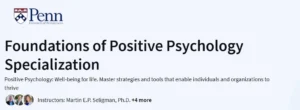What will you in Docker for the Arts and Heritage Management Course
Understand the dynamics between curatorship and management in cultural settings.
Explore strategies for audience engagement and value creation.
Examine the balance between artistic integrity and market demands.
Learn about branding, loyalty, and performance metrics in the arts sector.
Gain insights from industry professionals through case studies and interviews.
Program Overview
1. Curatorship vs. Management
⏱ Duration: ~4 hours
Explore the interplay between curators and managers in cultural institutions.
Understand how art and heritage generate value for audiences.
2. Heritage and the Marketplace: A Delicate Equilibrium
⏱ Duration: ~2 hours
Discuss the relevance of “art for art’s sake” in today’s context.
Analyze the role of visitors in shaping cultural offerings.
3. Emotions vs. Ratios: Hedonic Consumption and the Role of Experience
⏱ Duration: ~1 hour
Delve into consumer behavior and decision-making in cultural consumption.
Examine how environment and experience influence visitor engagement.
4. Branding Heritage to Build Loyalty
⏱ Duration: ~2 hours
Learn strategies to foster visitor loyalty through branding.
Understand the challenges of maintaining brand identity in cultural institutions.
5. The Numbers Heritage Needs to Grow
⏱ Duration: ~2 hours
Explore performance measurement tools and fundraising strategies.
Understand the importance of data-driven decision-making in the arts sector.
6. Meet the Managers
⏱ Duration: ~2 hours
Gain insights from interviews with professionals managing renowned cultural institutions.
Learn about real-world applications of course concepts.
Get certificate
Job Outlook
Growing demand for skilled professionals in arts and heritage management.
Opportunities in museums, galleries, cultural centers, and nonprofit organizations.
Roles include Cultural Manager, Museum Director, Arts Administrator, and Program Coordinator.
Skills applicable to both public and private sector cultural initiatives.
Specification: Arts and Heritage Management
|
FAQs
- No prior experience required.
- Covers management principles for arts and heritage institutions.
- Explains balancing artistic integrity with market demands.
- Provides insights into audience engagement strategies.
- Suitable for newcomers and aspiring cultural managers.
- Learn strategies for enhancing audience engagement.
- Explore techniques to foster visitor loyalty.
- Understand visitor behavior and decision-making patterns.
- Apply insights to improve cultural offerings.
- Gain practical tools for both in-person and digital engagement.
- Learn to track key performance indicators (KPIs).
- Understand metrics for audience satisfaction and engagement.
- Explore fundraising strategies for cultural institutions.
- Apply data-driven decision-making for growth.
- Enhance operational efficiency and strategic planning.
- Applicable to museums, galleries, and cultural centers.
- Teaches universal principles of arts and heritage management.
- Enhances skills for both public and private sector organizations.
- Covers leadership, branding, and operational strategies.
- Prepares learners for diverse cultural management roles.
- Builds expertise in cultural management and leadership.
- Strengthens skills in branding, audience engagement, and performance evaluation.
- Prepares for roles like Museum Director or Cultural Manager.
- Enhances employability in arts and heritage sectors.
- Provides practical knowledge from industry case studies and interviews.





